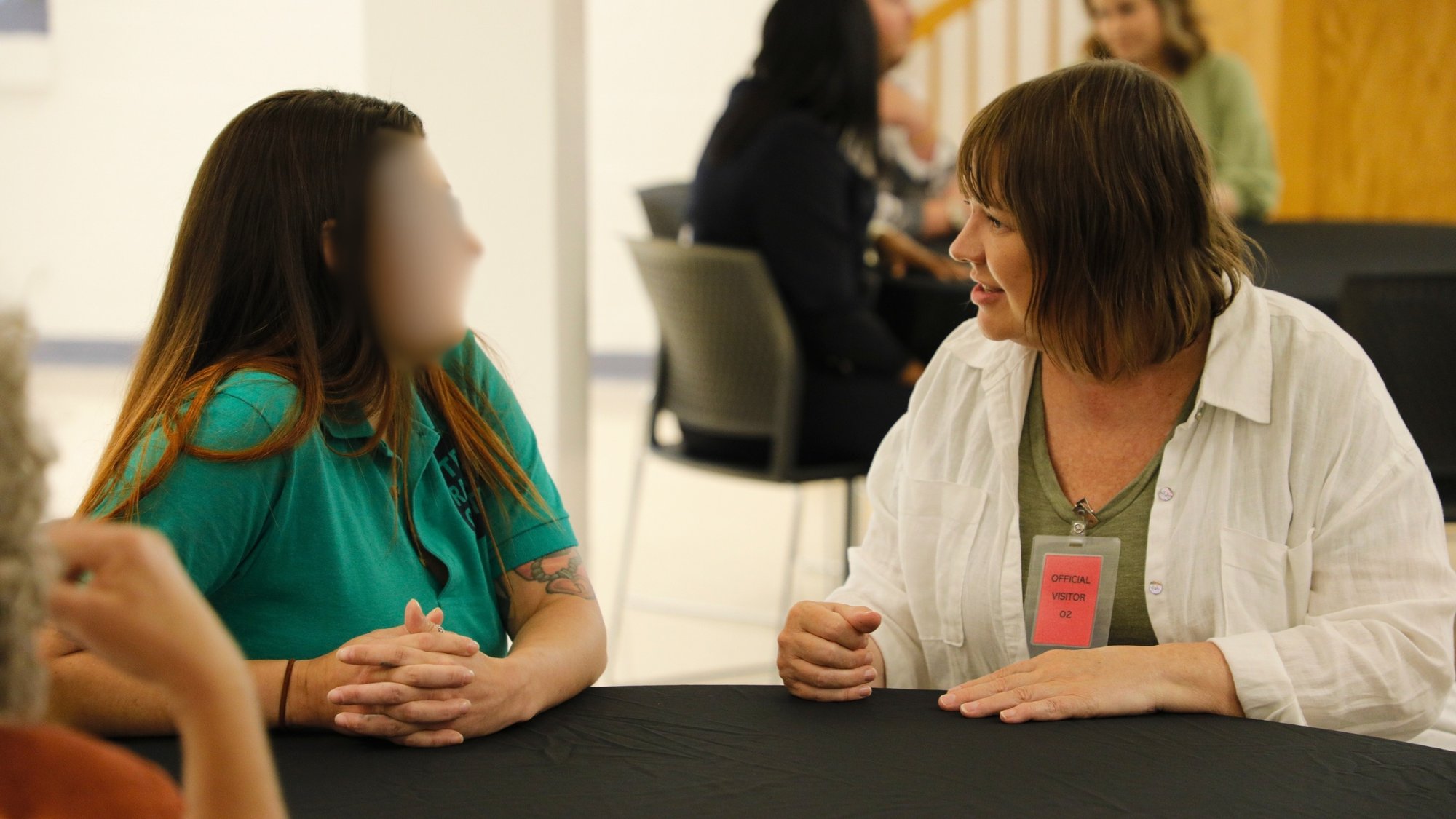Volunteer Mentorship
Initiative
are in custody
Purpose & Goals
- To have an approved Mentor matched with every eligible person under VMI program who expresses an interest to be mentored.
- To ensure each Mentor has at least one monthly contact with Mentee.
- To create specific Mentor Networks to include focus on education, family reunification, and job skills (resume assistance, interview practice, job placement, etc.)
The Partnership Between GFBCI and TDOC
GFBCI Executive Director Lance Villio discusses with TN Department of Correction Commissioner Frank Strada the importance of community and faith partners in reentry of incarcerated men and women across Tennessee.
VMI Partners
Our government and community partners provide invaluable support to our mission, offering resources and programs that empower individuals reentering society to achieve successful and sustainable reintegration.
Government Partners:
- Tennessee Department of Correction
- Tennessee Department of Children’s Services
Community Partners:
- Men of Valor
- Tennessee Prison Outreach Ministry

Receive Email Updates
The mission of the VMI is to create a support system that identifies and addresses gaps and obstacles returning citizens face during reentry.
There is no “one-size fits all” solution to everyone’s reentry journey. By matching external mentors with mentees while they are still incarcerated, solutions may be more individualized by taking the voice of the mentee into account.
The first differentiating factor in this initiative is that it is not exclusively faith based. Although moral principles are included in the mentoring sessions, it is up to the Mentee to determine if they want religion to be included in their conversations. We recognize that there are differences in religious beliefs and that reentry assistance should not be tied to a religious preference.
The second differentiating factor is that mentorship in this program is not built around “friendship”. Although companionship will naturally occur, the mentors will be expected to advise the mentee in positive and responsible decision making and help them identify areas they should be focusing on. Once the initiative goes into full launch, multiple mentoring networks will be created to provide specific assistance to the most common reentry obstacles, such as education, housing, employment, and family reunification.
